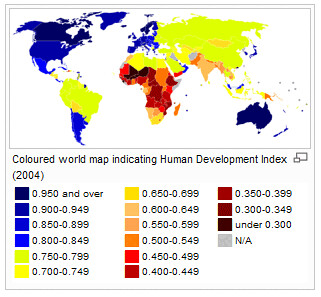Some Questions About our New War
This was all done with about 3 hours notice and with no release of the text until it was voting time. There was basically no debate and little discussion. The 5 countries who opposed the plan decided to abstain (including Brazil, India and Germany) declined to speak.
So we have Obama’s first war. Yes, war. Not just a “no fly zone,”as some keep misstating. The world’’s highest body has blessed “all necessary measures…to protect civilians.”
I am all for helping the Libyan people achieve their democratic destiny, but a few questions need to be answered before I can support another US war in the Middle East.
Is our mission to protect civilians, or is it to back a rebel army to change the regime?
Are we really protecting civilians by dropping bombs from airplanes?
Will foreign military intervention really work?
Why has dialogue not been tried?
How do we know we are not going to create the next Afghanistan or Somalia - a failed state.
First off, lets talk about the mission, the goal. It seems to depend who you ask. The UN resolution only talks about protection of civilians. But leaders in the US, UK and France have openly said that Gaddafi “must go.” Certainly that seems to be the goal but whether it’s authorized by the resolution is another question. On the same note, does the Resolution protect only civilians but also rebel fighters? Again, there appears to be a disconnect between what the resolution says and what the US, UK and France are saying.
Second, on civilians., we have to mention a bit of international law. The UN Charter only recognizes only 2 reasons to authorize warfare: when international peace and security is threatened and for self-defense (Article 2(4)). But this vote did not cite either rationale.
What we have in Libya is a pretty classic Civil War, fed by regional/tribal divisions and also religion (Gaddafi is not religious enough). Civilians have certainly paid a price – but it is nothing in scale to the many other Civil Wars in Africa over the last decades – none of which apparently warranted air strikes. Why are Libyan lives worth more than those from the Congo or Sudan?
Third, the internationalization of the Libyan issue has the potential to poison the well, so to speak. Libyan rebels will lose one of their biggest strengths – their independence from foreign powers. Under attack, Libyans are likely to rally around the (current) flag. Therefore, the result may backfire.
Fourth, it is highly worrisome that dialogue and discussion has not even been seriously tried. A proposal to accept international mediation was accepted by Gaddafi more than a week ago – but went nowhere because the rebels refused. They demand regime change and will not accept anything less than a revolution. But since when has a violent rebellion been a legitimate way to achieve power?
Fifth, even if we “win” and kick Gaddafi out, we should know by now that this is not the endgame. We break and country, we own it. While we still don’t really know who we are dealing with, Islamic Fundamentalists certainly form a strand of rebel support. An entire new country would have to be created under a new regime.







